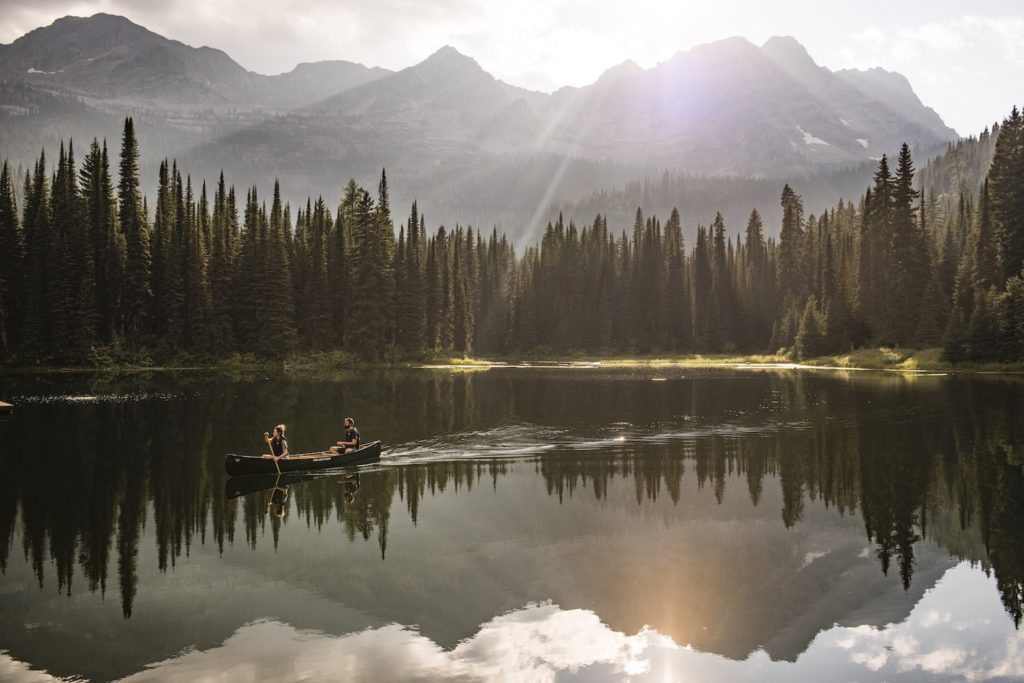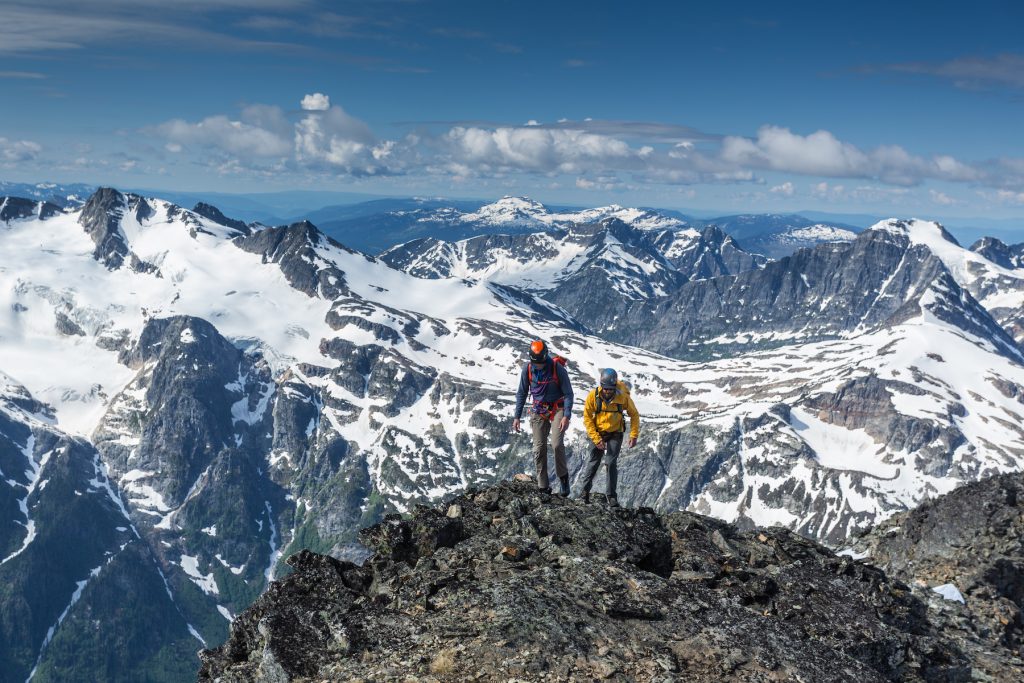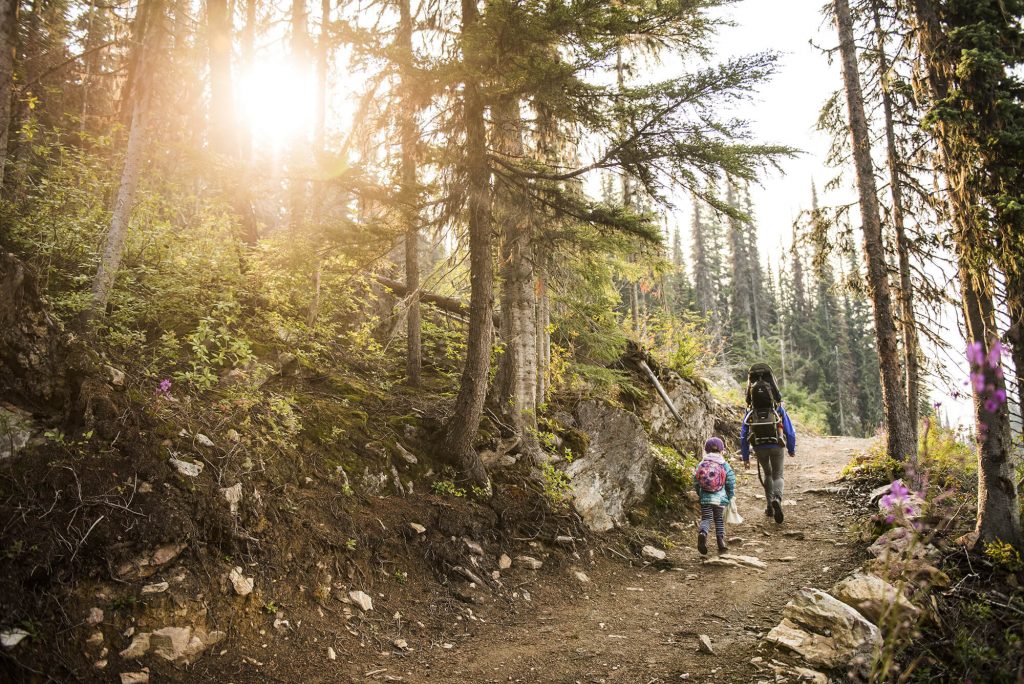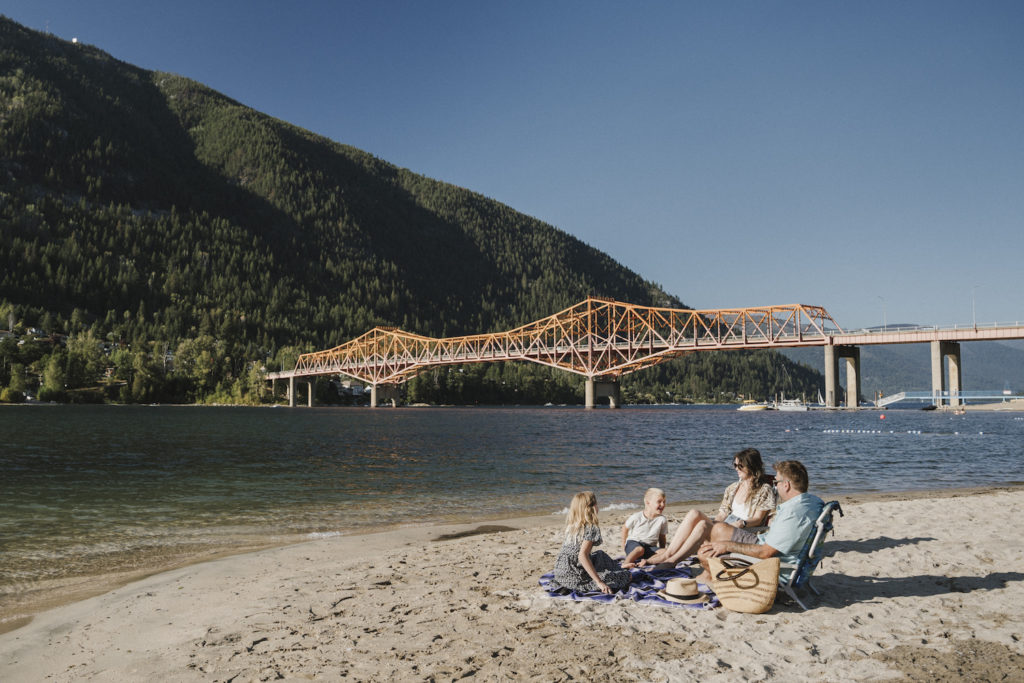Travelling responsibly provides an array of advantages such as reducing environmental footprints, advocating for local communities, safeguarding cultural heritage, and cultivating profound experiences.
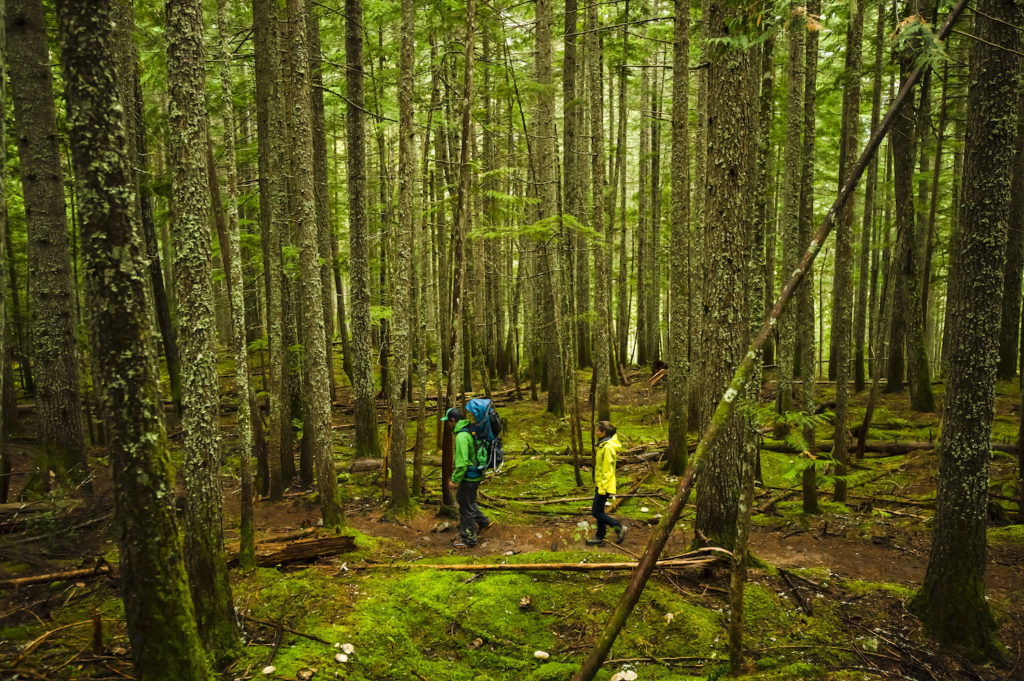
Preparedness is key. It enhances your capacity to manage unexpected situations. Through meticulous planning in-advance and the implementation of appropriate safety measures, visitors can substantially appreciate the pleasure derived from their planned journey in the Birthplace of Adventure. Here are five tips, to get you started:
1 – PRE-PLANNING IS ESSENTIAL
Push aside the chatter of social media hype and news media narratives – instead, please rely on “verified sources” for the most current preparedness information. Organizations such as the BC Wildfire Service, DriveBC.ca, and resources like the ‘Know Before You Go’ page at KootenayRockies.com are excellent points of reference. Stay informed with real-time updates to ensure a safe and planned travel to/from the Kootenay Rockies region of British Columbia.
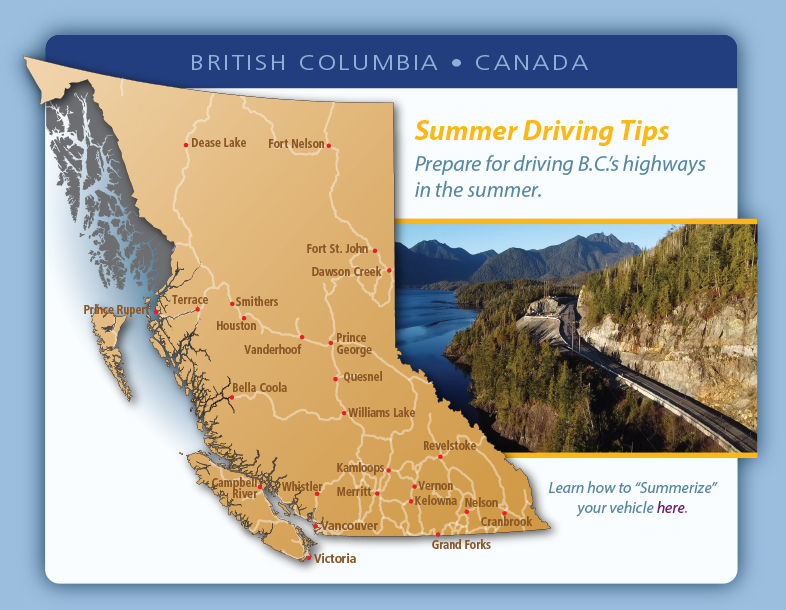
To ensure optimal readiness for your vehicle during travels, it is advisable to pack an emergency kit. Essential items to consider should include but are not limited to a first-aid kit, flashlight, jumper cables, non-perishable food items, water, blankets, and a tire repair kit.
Download the Apps
~ BC Wildfire Service | Drive BC Mobile
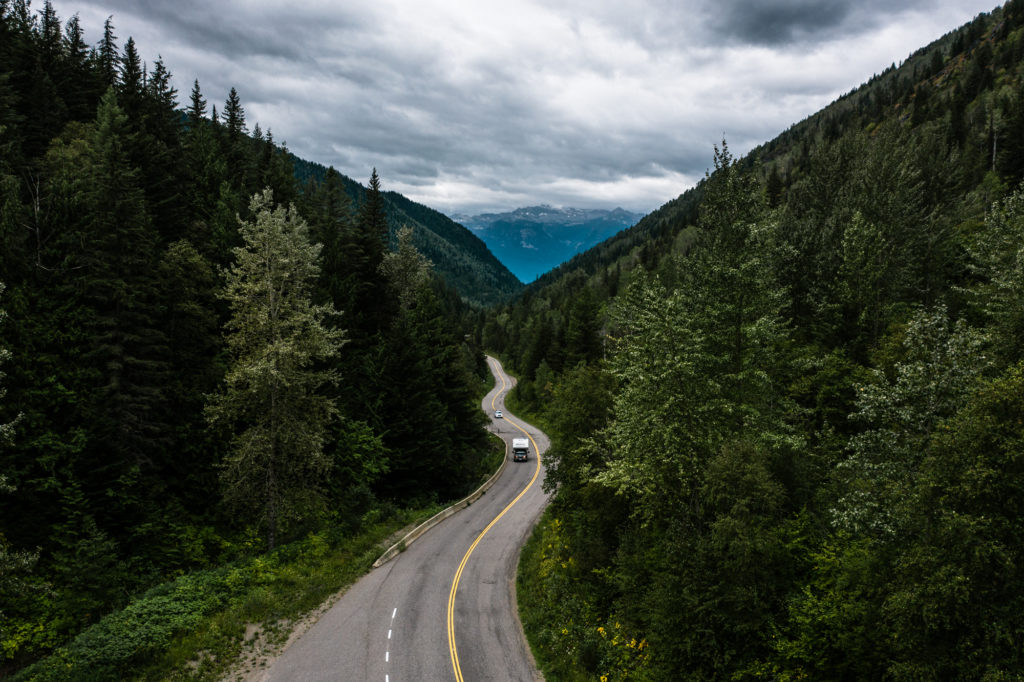
2 – KEEP THE WILDLIFE AND YOURSELF SAFE
Maintaining a responsible speed and recognizing wildlife presence on highways by slowing down is essential. Please do not approach wildlife. Stay 30-metres (3 bus lengths) away from elk, bighorn sheep & mountain goat and 100-metres (10 bus lengths) away from moose, grizzly and black bears. And let’s remember, it’s crucial to respect nature’s creatures by not feeding them (even if they have the charisma of a squirrel).
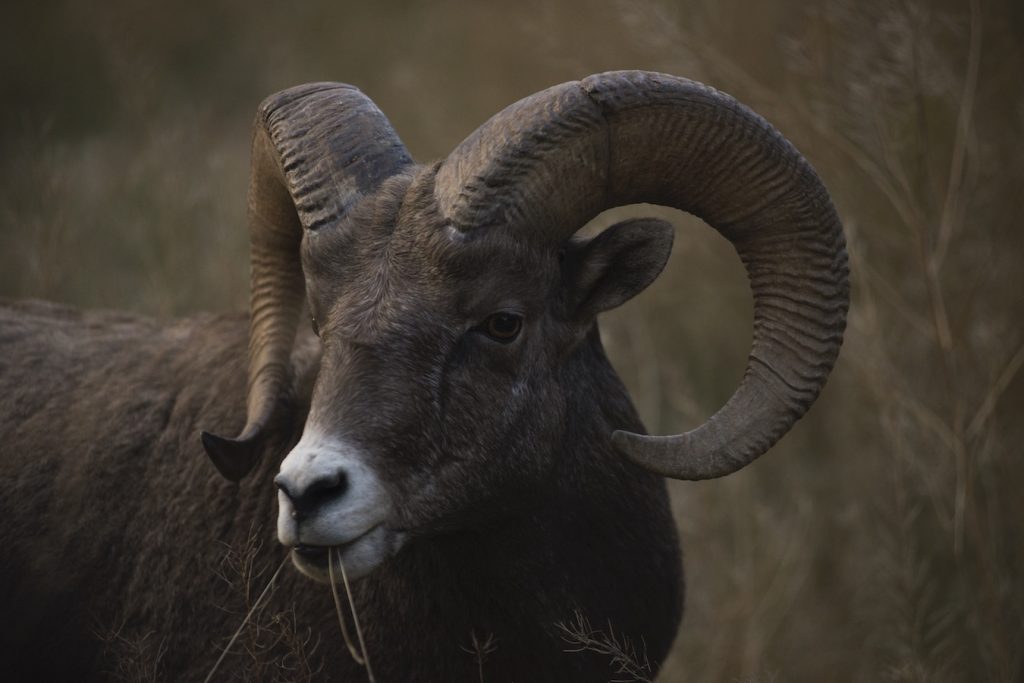
If you plan to explore the backcountry, you may consider using a four-wheel drive, high-clearance vehicle. Be advised that many of the gravel Forest Service roads are used for logging activities, making it imperative to yield to these trucks as they have the right-of-way.
3 – RESPECT THE LAND
Q̓api Ktunaxa Sukiⱡq̓ukni kin wamiⱡkiⱡ ʔamakʔis / The Ktunaxa are happy you are here – Welcome
Exploring the expansive landscapes of the Kootenay Rockies provides an unique opportunity to learn more and experience the Indigenous culture deeply embedded in the southeast corner of British Columbia. The very name ‘Kootenays’ traces its origin to the Ktunaxa people, who have been the living custodians (in addition to the Secwépemc, Sinixt and Sylix) of these lands for generations. Presently, Indigenous communities and their representatives are increasingly extending an invitation for visitors, by sharing their rich traditions and culture spanning the past, present, and the future.
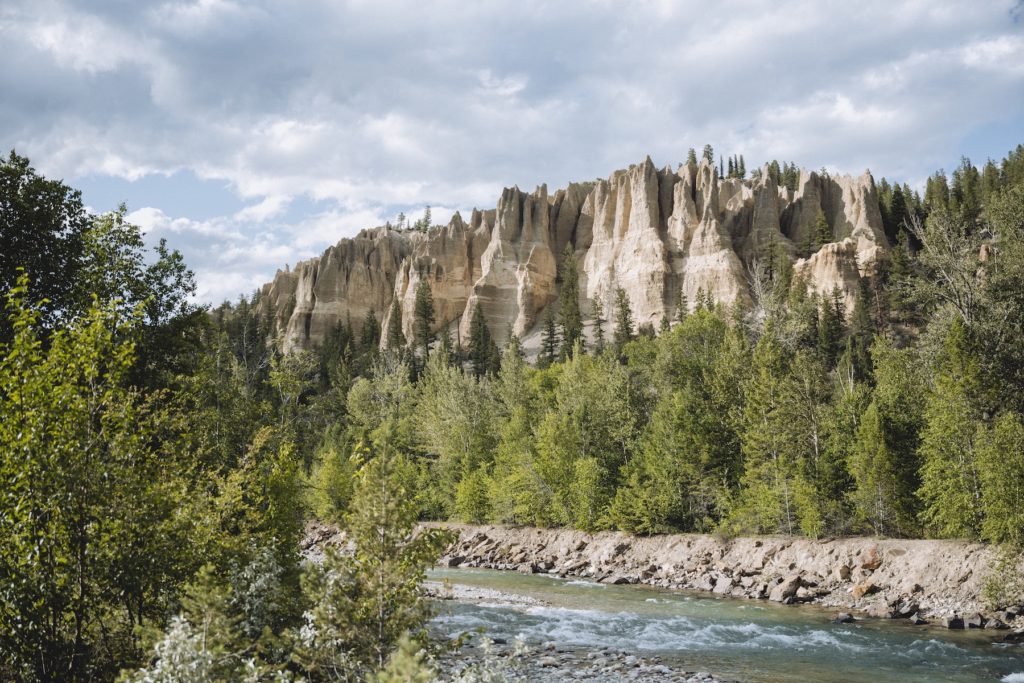
4 – FOLLOW THE 3T’S: TRIP PLANNING, TRAINING & TAKING THE ESSENTIALS
Trip Planning – Finalizing a travel itinerary is beneficial. This outlines your designated location, planned route of travel, and anticipated return schedule. Send this to a friend and/or family member prior to your departure.
Training – In preparation for a hiking/biking expedition, you should begin with shorter excursions and build up your endurance to take-on longer and expert trails. Most importantly, remember to sufficiently wear-in your hiking boots ahead of your trek.
Taking the Essentials – In considering preparedness for outdoor adventures, spanning from just a few hours to a full-day exploration – there are fundamental items which are essential to have in your pack. Extra food/water, sun protection, a hat, warmer clothes are a must, while you may want to bring more. Strive for Plan A, but also plan for Plan B or C!
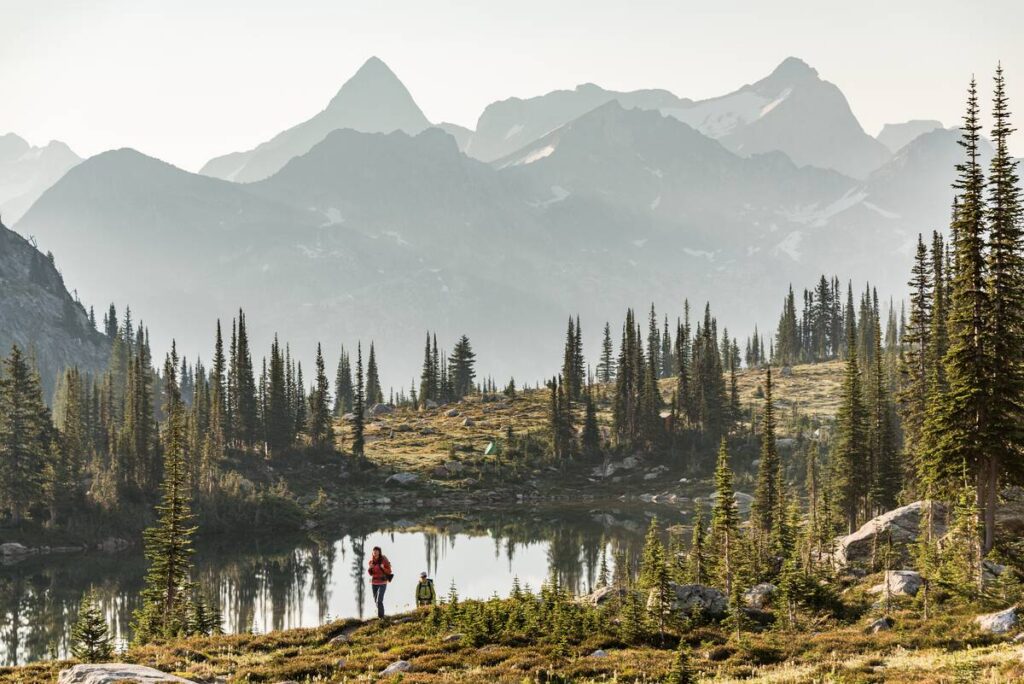
5 – SUPPORT LOCAL
On the Trails – The dedicated volunteer groups diligently maintain local trail systems that are crucial to our communities. To support these efforts and ensure continual improvements, consider purchasing a local trail map or donating to a community bike club. Your contribution will assist trail enhancements continue season after season.
In the quest to reduce the environmental footprint, it is quintessential to stick to the designated trails and forsake taking shortcuts. Pet owners should keep their pets leashed and restrict them to designated pet-friendly trails. Mountain bikers should note that yielding to hikers is a standard protocol. Please wash your hiking boots & bikes after each adventure to reduce the spread of invasive species.
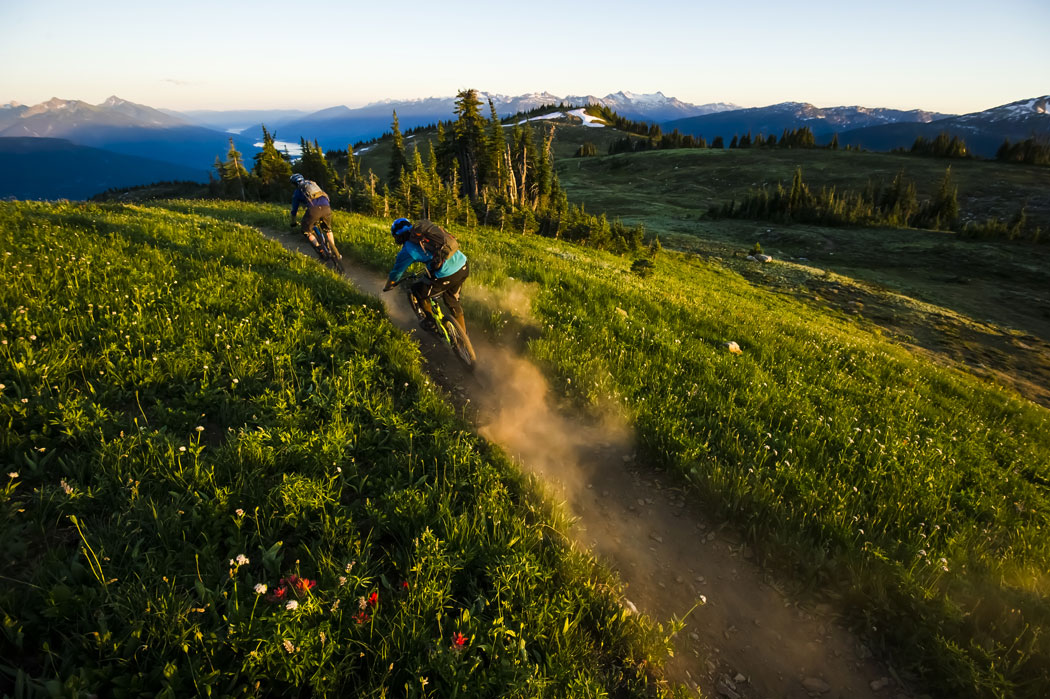
On the Water – Careful planning is essential for watersports – check weather forecasts and acquire fundamental skills and knowledge to navigate confidently in your chosen watersport. Engage with accomplished paddling/boating guides in your preferred aquatic location and consider booking a guided excursion. In the cool mountain lakes lifejackets offer insulation, mitigating the risks of cold-water shock – personal flotation devices (PFDs) and life jackets are life-saving tools in aquatic environments. Please wash your watercrafts and stop at check-in areas when travelling to/from your destination – to help stop the spread of invasive species.
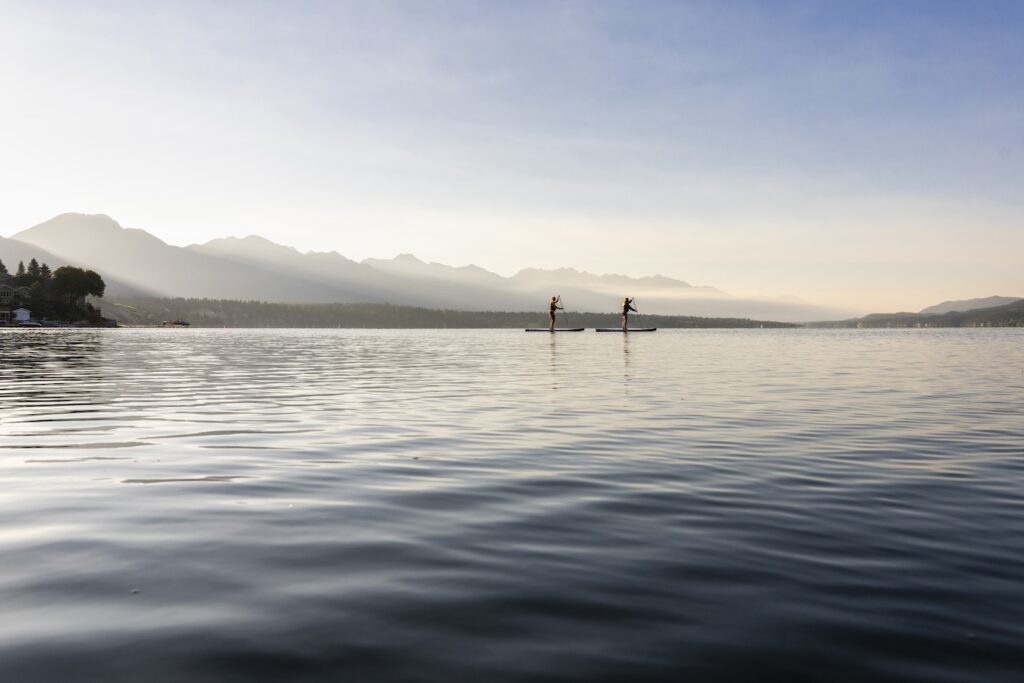
Be FireSmart – During your outdoor excursion, should you opt to prepare a small fire-cooked meal, please ensure total extinguishment of your campfire prior to departure. Please apply water generously to the fire, simultaneously stirring to ensure all embers and ashes have been soaked. In situations where water is unavailable, dirt or sand may be used as a substitute, blending it with the embers until the touch confirms a cool state. If you see a wildfire, please report it immediately – call 1 800 663-5555 toll-free or *5555 on a cellphone.
Knowledge is paramount for a responsible visit. We encourage you to reach-out to the local Visitor Centres, and/or knowledge guides and adventure operators for further assistance.

